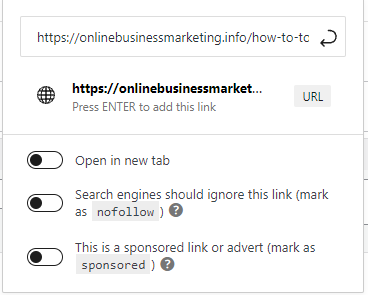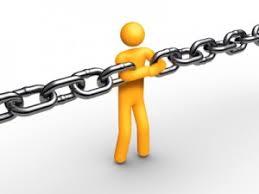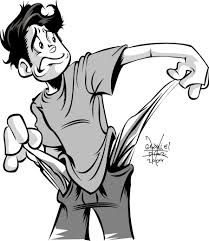9 stages to writing a blog. Linking for money. There are many types of links in a post and they are all important to your success
Estimated reading time: 7 minutes
Table of contents
What are links anyway?
This is a way to take a reader from your site to another one without leaving the page they are on. Importantly have them return when they are finished but only if you want.
There are lots of different links and we use them for all different reasons however some are very important.
Your SEO companies will demand you have both internal and external links on your site for good SEO. Therefore let's look at a few examples.
Internal Links
- The internal link takes your reader to another page to provide them with extra information.
A. A pricing page or checkout
B. Terms and conditions
C. The about you page and contact details
D. Another blog on a similar subject
E. Your home page
These internal links are different from an external link where you take the reader to an entirely different source of information.
External links
2. The external link should add value to your writing in some way.
A . Authority Link, adding value to your post
B. Educational link. ex Wikipedia
C. Image links
D. No-follow links
Affiliate links
These take the reader off to a sales-based site
How do you tell Google what links to follow

Using WordPress block builder you have this handy box that does the job for you.
A. Open in a new tab.
This is my favorite box because it tells Google when you are finished on the new page to bring you back to where you started from. By not using this box the reader will simply log out of the page and be lost forever.
This increases the on-page time and keeps them reading the rest of your article.
B. Mark as no-follow
These are a few examples where a No Follow order could be used
- Sign in pages
- Registration pages
- Forms that search engines can’t get past
- Terms and conditions pages
- Sites you don't want to vouch for
C. Affiliate links
All those selling pages that Google has no interest in promoting.
9 stages to writing a blog. Linking for money with Site links
Are site links really that important?
Links are not only important they are essential to use on every page or post you do.
They build great SEO statistics with authority and page time showing that you understand what you are doing. Furthermore, they are often the money pages where you can promote a product for sale.
Both Yoast SEO and AIO SEO push for both an internal and external link on every page. They are the experts so who are we to argue.
Directing readers to a call to action
We, the readers, can be a dumb lot and we need to be told what to do or we flit off into another world. A post or page finishing with a call to action completes the page and carries the reader to a new position.
You might not be actively pushing for a sale however let your readers make the decision based on the facts you have provided.
A call to action makes the decision process easier and completes the page or post you are using.
In a Funnel, as an example, the whole page leads to that final act of buying, accomplished with a link to a money page.
Using links to establish authority
Google loves authority and in fact, uses it to the detriment of many bloggers.
If you are writing on legal matters a Lawyer will always come before you in the pecking order.
The dean of the law school will outrank them so the hierarchy builds away from the less educated of us.
However, using research and quoting authority figures with reference to your work shows that you are a legitimate contender for a front-page position.
Therefore in this case a link or two is a necessity, not a chore that can be ignored.
Using a site like Wikipedia also builds some authority because it is a high transactional site and is considered to be akin to a university in the knowledge it provides. So if you can't find an authority site use Wiki to do the job.
9 stages to writing a blog. Linking for money with tags
Image links need to be tagged with a description

This simple chore is often forgotten by new players and it gets you really offside with Google.
They demand an Alt Description on every link on every page.
You can use your Keyword in many of them however explaining what the image is about suits all the sight-impaired people.
Therefore every image should have a description placed in the appropriate panel.

This is essential but vary your descriptions within the page.
The money page links

When you have a page or a blog it is there for a reason and that reason will require a link of some kind. Even a charitable blog page should have a destination for those that want more.
Blogging is a time-consuming exercise and for that reason alone you should be paid a return for your input.
If these links are important, and I think so, then they need to be done with consideration for the reader.
A page full of links is a turn off so keep them important to your product. Highlight them so they stand out and make it clear what they are for. You are not selling a used car so be a little subtle in your effort and think of your audience.
Put yourself in the place of the reader and think about placement and appropriateness.
However, don't be queasy about your links, we expect them to help our journey of discovery just use them wisely.
Conclusion
This is a very important part of your internet journey and one that has rules to follow.
Always have an internal and an external link just to please Google and a money page to make it all worthwhile.
Don't overpopulate the page with opportunities but craft your links so that they are used as you want them to be.
Don't be shy about this because it is part of the process however keep your reader firmly in your mind because you are writing for them.
9 stages to writing a blog. Linking for money by Peter Hanley

9 stages to writing a blog. Introduction
9 stages to writing a blog. Hosting
9 stages to writing a blog. Your page
9 stages to writing a blog.Description
9 stages to writing a blog.Word count
9 stages to writing a blog. tools
9 stages to writing a blog. Boredom
9 stages to writing a blog. Analytics